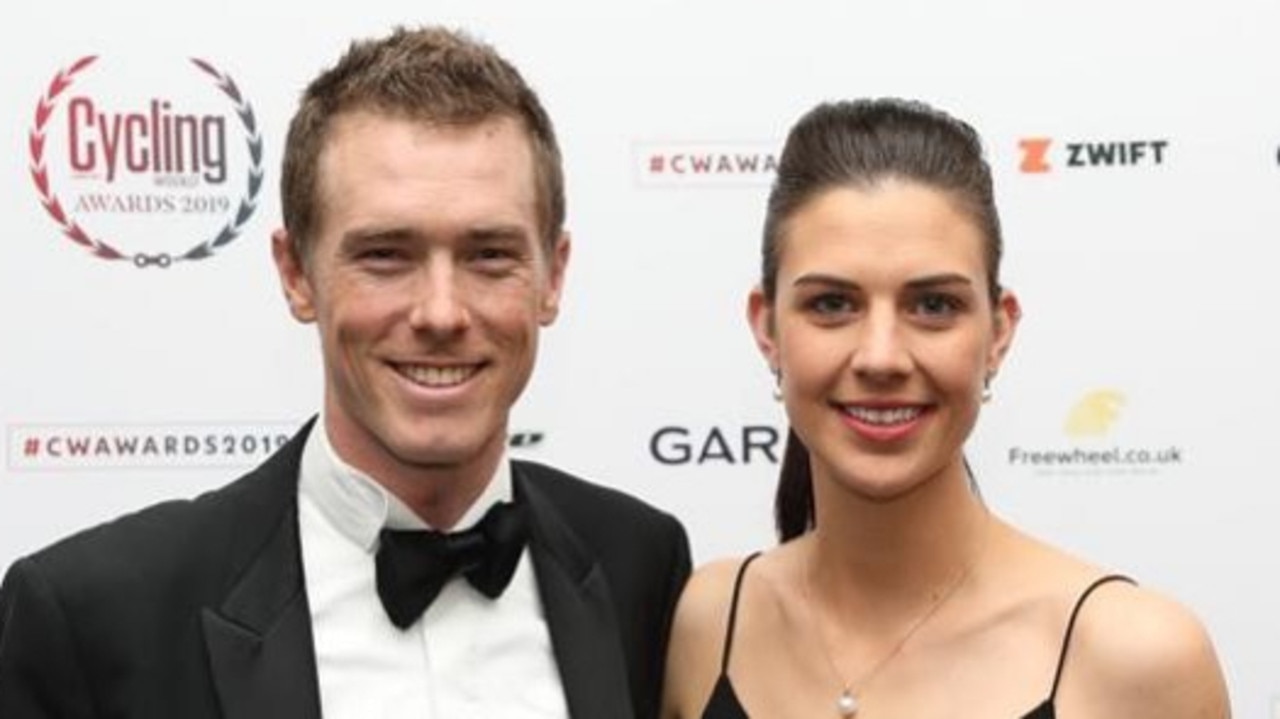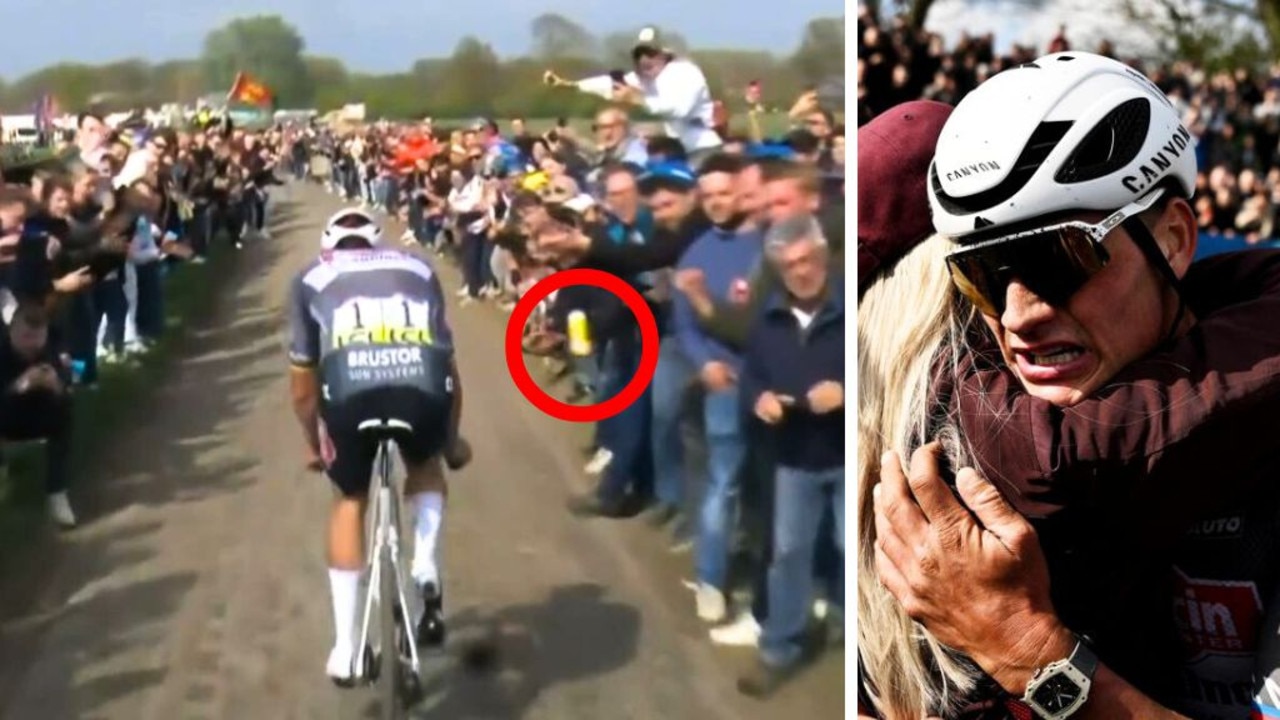Anna Meares retires from cycling over serious back injury that threatened her long-term health
DOCTORS warned Anna Meares that she risked her long-term health if she rode on after Rio. The champion cyclist has announced her retirement. | What Meares wants to do next | Her top five moments
Cycling
Don't miss out on the headlines from Cycling. Followed categories will be added to My News.
DOCTORS warned Anna Meares that she risked her long-term health if she rode on after Rio and the champion cyclist on Sunday revealed the extent of her back injury as she announced her decision to retire.
The dual Olympic gold medallist spent every day for four months leading into the Rio Games with her torso completely strapped at training as the severity of her injury was kept secret.
Meares — who broke her neck in a race crash in 2008 — re-injured her back in New Zealand last December and scans revealed two tears and two bulges in the lower three discs.
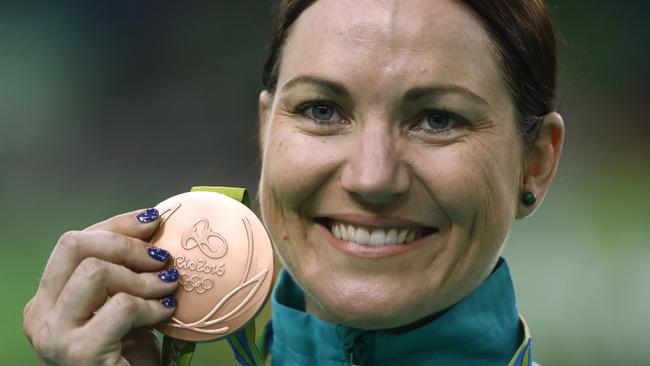
The 33-year-old also suffers from pars defect which is a set of naturally occurring fractures through her L5 vertebrae causing instability in her spine.
But she still made it to Rio and won Australian cycling’s only individual medal with bronze in the keirin.
“The medical advice I got at that time (December) was if I was considering riding past Rio I probably should reconsider for the health of my body in life post-sport,” Meares told The Advertiser on Sunday.
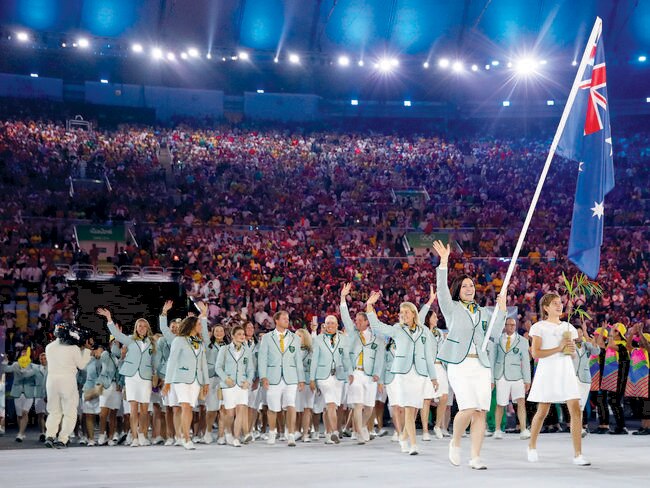
“I lived a good three to four months strapped in training before Rio — fully strapped from my ribcage to my pelvic bone and lived on antinflammatories and paid meds.
“And since I’ve been home from Rio and not trained my body has relaxed and a lot of that tension is gone, I haven’t had any discomfort in my neck or spine so it’s actually nice.”
Meares also required six cortisone injections through her spine just to get to a fourth and final Olympics in Rio where she carried the Australian flag at the opening ceremony.
“The degeneration in the discs from the tears and bulges has created arthritis through the lower part of my spine,” she said.
“My team did a wonderful job in creating a training program for me that was outside the box of normal training that we would do.
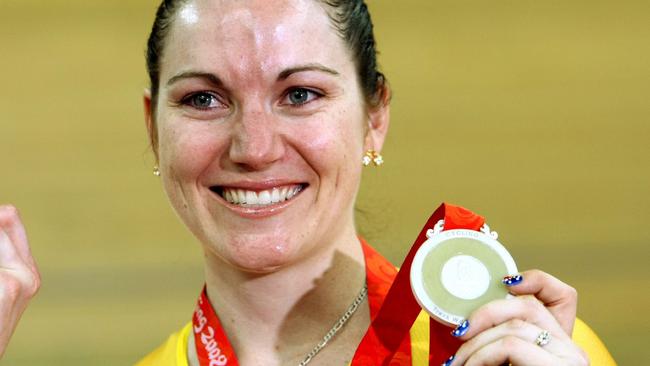
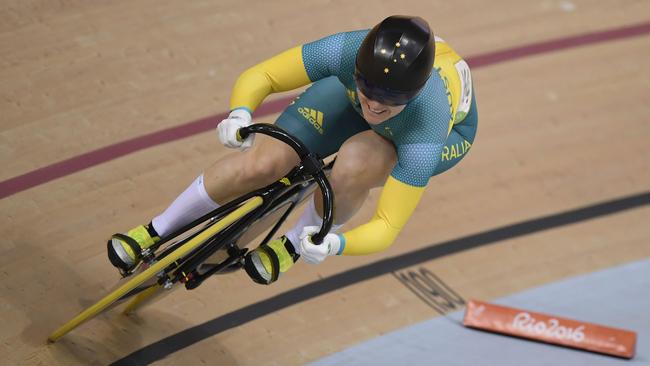
“It was really stressful ... but I never let on to anyone other than my very close people where I was at because I knew what I was capable of doing and it wasn’t information that was necessary to share.”
Although her tears and emotions after her final race in Rio in August hinted at retirement, Meares did not make her final decision until after speaking with her dad Anthony when she got home.
The major carrot to continue was the prospect of riding in a home Commonwealth Games on the Gold Coast in 2018 but Meares had decided she was done.
“When I got to go home and speak to my dad a couple of weeks after I’d been home, I ran by him my thought process and my decision,” Meares said.
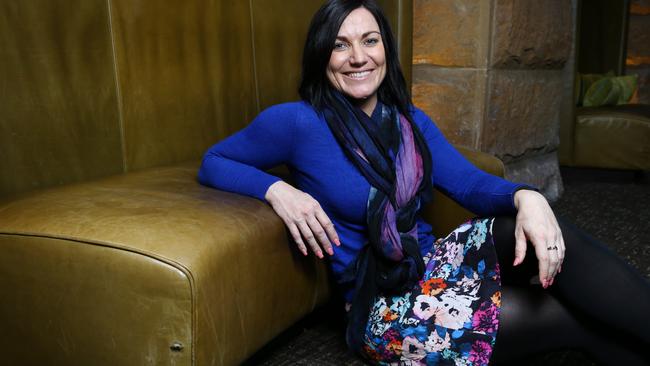
“I know he always gives really honest feedback and he was very happy with that and said if I had of told him I was going to ride on, he would have a bit more of a discussion with me.
“I knew for a long while leading into Rio that this was where I was leaning, but I knew the focus I needed to get to Rio and be in the best condition I could.
“I needed to make the decision based off what I wanted and where I wanted to go, not what other people wanted for me or wanted me to do, and that would have led me down an emotional path.
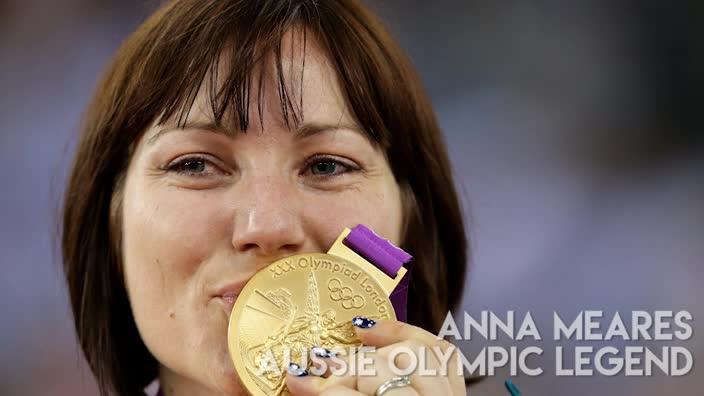
“The Gold Coast was the hard part because it would have been fantastic to compete ... but as much as I know I could do the day of competition, it’s the training every day both physically and mentally I don’t feel I can do any more.”
Meares retires from the sport as the greatest female track cyclist ever and most successful Australian cyclist in Olympic history.
In a 15-year international career she won six Olympic medals including two gold in 2004 and 2012, 11 world championships and five Commonwealth gold medals. She also won 35 national titles.
The standout moment of her career was winning gold in the sprint final against archrival Victoria Pendleton in London in 2012.
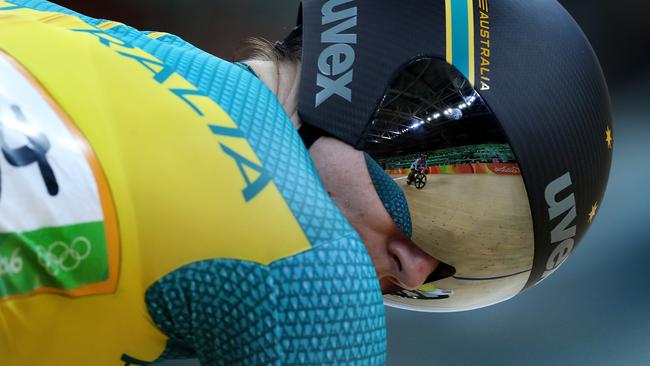
“I am really proud I have stuck around for as long as I have and while some people think I have made it look easy, I had to work so hard to stay on top,” she said.
Meares will mentor young Australian cyclists and combine media work with public speaking and ambassador roles next year.
Her next foray on the bike will be a charity ride with former Australian cricket captain Steve Waugh later this month.
Comment — One of our biggest stars who never forgot her roots
IT WAS the glare that got you with Anna Meares.
That stone cold, emotionless expression on her face whenever she set foot inside a velodrome.
Not just on the start line. It was in the pits in the centre of the track, on the warm-up bike with her headphones on or sitting alone waiting for the race to start. She wore that face to the velodrome for more than 12 years — from her first Olympics in 2004 to her fourth and last in 2016.
She won six Olympic medals including two gold, 11 world championships — the most ever by any woman in history — five Commonwealth golds and 35 national titles.
But what medals don’t tell is the full magnitude of Meares’ journey. They don’t tell the story of the coal miner’s daughter who grew up on a BMX bike in Middlemount in Queensland and learnt her craft on an outdoor, concrete velodrome in Rockhampton.
Of becoming Olympic champion at just 20 to breaking her neck in 2008 then clawing her way back to the Olympic podium seven months later, to her greatest triumph in London in 2012 and carrying the flag at the opening ceremony in Rio.
Meares is recognised as one of Australian sport’s biggest stars and will be spoken about in the same breath as Dawn Fraser, Betty Cuthbert and Margaret Court as national sporting icons.
The adulation from the Prime Minister down after Meares announced her retirement showed what high esteem she is held in across the country.
But the messages that would have meant the most to her on social media were the ones from ordinary Australians who simply said “thanks”.
Thanks for the memories, thanks for getting them back on their bike and enjoying cycling again and thanks for inspiring them to reach for the stars.
Because what Meares’ race face on the bike masked so well was her gentle nature and kind, charitable heart off it.
She never forgot where she came from, never lost touch with those who helped her along the way and was never too busy to reply to letters or stop for photos with fans and always with a smile.
Her legendary career is now over but the legacy she leaves on the sport will last forever.
- Reece Homfray
PM leads the tributes
CONGRATULATIONS from Prime Minister Malcolm Turnbull down flooded social media when Anna Meares announced her retirement.
Meares made her retirement official on Sunday morning, ending speculation she may ride on to the 2018 Commonwealth Games.
Politicians, sport stars and Meares’ cycling team-mates took to Twitter to pay tribute to the 33-year-old two-time Olympic gold medallist.
“Grit & determination made the kid from Middlemount QLD history’s greatest female track cyclist. Australia looks forward to your next chapter,” Turnbull tweeted.
SA Premier Jay Weatherill: “Congratulations @AnnaMeares on a brilliant career and best wishes for your next chapter. A true champion in every sense of the word.”
Sally Pearson: “Thank you @AnnaMeares for everything you have done for Australia! #idol #retired.”
Kim Brennan: “@AnnaMeares congratulations on an amazing career. You will always be the athletes’ athlete. Resilient, humble and universally respected.”
Roger Rasheed: “Congratulations @AnnaMeares , Inspiring both on and off the bike.You’re a gem. Excited for your new ride in life. #legend.”
Jessica Trengove: “@AnnaMeares thank you for being an incredible role model to us all...so much respect for your work on & off the bike - all the best!”
Meares said she was overwhelmed and admitted it had been an emotional day.
Originally published as Anna Meares retires from cycling over serious back injury that threatened her long-term health

